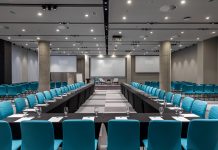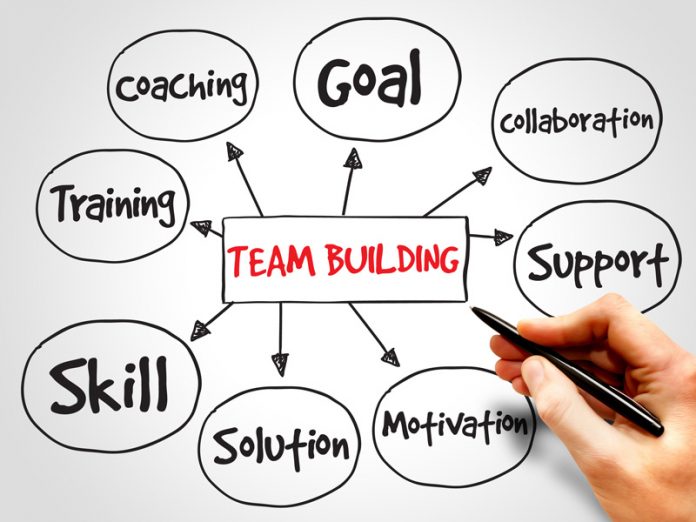Team building, as a series of simple, but also a complex activities, involves empowering of teams in, usually, group processes. It aim at increasing productivity, collaboration, improving interpersonal relations between the companies and associates, increasing motivation, establishing mutual solidarity, support and much more.
Very often, the process is designed in three segments: entertainment, relaxation and education. Creating an atmosphere of trust and unity, but also a chance for everyone to give their best, is an important element of team building activity.
At the times of emphasized individualism, quite paradoxically, we more clearly gain a belief that a success is – in fact the principle of a system, group, organization.
More important segment is that the sense of personal competencies, self-confidence, self-efficacy, self-esteem significantly increase when we are part of a team that wins, i.e. when a winning is not only personal.
Ability to cooperate, as one of the most favourable social personality traits, although welcomed, does not have to be part of the character traits and/or behavior of each person. It can be acquired and built, as the character traits can be changed. Taken into consideration from a psychological point of view, there are those personality traits that, regardless of the impacts will not suffer a (desired) change. Our temperament is a given one.
What we can do to make the quality of life, work, entire productivity and prosperity become better is – to listen, evaluate, follow and support at everyone those that represent his competencies, goals, motives, and opportunities.
At the times of emphasized individualism, quite paradoxically, we more clearly gain a belief that a success is – in fact the principle of a system, group, organization.
In this respect, Team supervision shall be recommended as a basis, i.e. the first step of a team building principle. This term comprises a process that includes a research resources and potential critical zones in the team and/or evaluation of a mode and potential for raising both individual and group quality, establishing the goals and continuous work thereon (the number of meetings is determined by the needs of a company, the company’s difficulties and ambitions of the employees themselves). Insight into interpersonal relationships, personal and team skills, shall be conditioned by the guidelines for specific trainings and team building activities. One of the important aspects, which is often neglected, is organizing the teams in which each participant will be the right and strong link in the chain that has a stable relationship with the other “links”, while the “chain” will have an established system of mutual respect and acceptance of differences therein. This process shall be analysed, inter alia, through a sociogram.
From the perspective of psychology, success nowadays is usually measured through a possession of “three hot intelligences”, namely: social, emotional and practical. Someone holds in his character one or all three of those as highlighted, but, also, all of those can be learned, trained, brought to high level of functionality. Although it belongs to an individual process of working with clients, there are also group trainings to improve mentioned potentials.
The sense of personal competencies, self-confidence, self-efficacy, self-esteem significantly increase when we are part of a team that wins.
It should not be overseen that each of us has a sufficiently wide range of potentials for a success. Someone accomplishes the most as a leader, someone through a primary individual activation, while someone else is the most successful as a team member. It is important to assess that the potentials and functions are compliant and then empower those. Similarly, the motivational factors within each man may vary, but also change over time. In addition to the assessment of motives, experience shows that every company and every employee, get their productivity increased through a Motivational training. The trainings of psychological and physical relaxation, which are extensively present in the West, represent an important measure in prevention of burn-out syndrome.

The principle of belonging is a feature that defines us both in psychological, psychosocial, and, additionally, in any other sense. We belong to a family, than to a variety of groups that are the zones of needs, interests, or just fun and joy. The family in which we grow up, kindergarten, schools, sports clubs, supplementary educational programs, are certain groups in which persons function as individuals, but, parallel and inseparably, as a part of the system. The system we belong to can be a team with which we share the same or similar goals and needs, but also only a place where we find ourselves because, as we currently estimate that the zone of personal / professional / existential interest is right there and dominant at that moment.
Communication trainings are the foundation of every good cooperation. Although the principle of communication is known to everyone, and it seems that there is no need to emphasize it, we almost daily encounter the lack of communication skills. While the business and interpersonal relationships in workplace rather function, it is generally not raised a question of quality of communication. But, at the moment when a professional dysfunction occur, or any problems in business performance, the process of “rehabilitation” very often results in a conclusion that the teams, i.e. the relations and communication in the team/company is not on a high level. There are several models and levels of training of communication skills, out of which the most effective are proven to be the following: Assertive training, Conflict Overcoming Training, so-called Working with difficult people; Leaders Coaching and other.
Communication trainings are the foundation of every good cooperation.
Team building as a process of empowerment, has a wide range of activities. Depending on the needs and goals of the company, there are most often created the specific programs that will address precisely those zones of interest that are assessed as critical or with deteriorated capacities. Sometimes the activities will be designed with only one purpose, such as: increase in productivity and ability to cooperate on a specific project, and sometimes the program will be designed to strengthen, through several principles, all the elements that contribute to the success of both the individual and the group. As, the team is the one that wins!
Dragana Deh, Msc Psychologist, Systemic Psychotherapist, Life Coach







































 Srpski
Srpski English
English